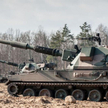Dan Smith, Director of the Stockholm International Peace Studies Institute, pointed out that the common perception that state institutions are slower to respond to crises is not borne out by the facts. During the last two crises, the pandemic and the war, it was relatively quick to shift money to other uses as needed. On the other hand, in the face of the third challenge of modern times, i.e. climate change, governments are still doing less than they could.
Czytaj więcej
Wydatki na obronność są fundamentalne w obliczu wojny – ale trzeba to robić efektywnie i transpar...
This is the worst time for us to militarise. Countries have not yet paid off their pandemic debts and have additional expenses due to the energy crisis and rising cost of living (which requires aid programmes or results in reduced tax revenues), and the cost of the green transformation.
Czytaj więcej
Wybuch wojny i agresja Rosji na Ukrainę zdefiniowały wyzwania stojące przed Europą, zarówno w sen...
As participants in the debate said, this is the reason why it is so difficult to increase defence spending by even 0.5 or 1 percent of GDP.



























